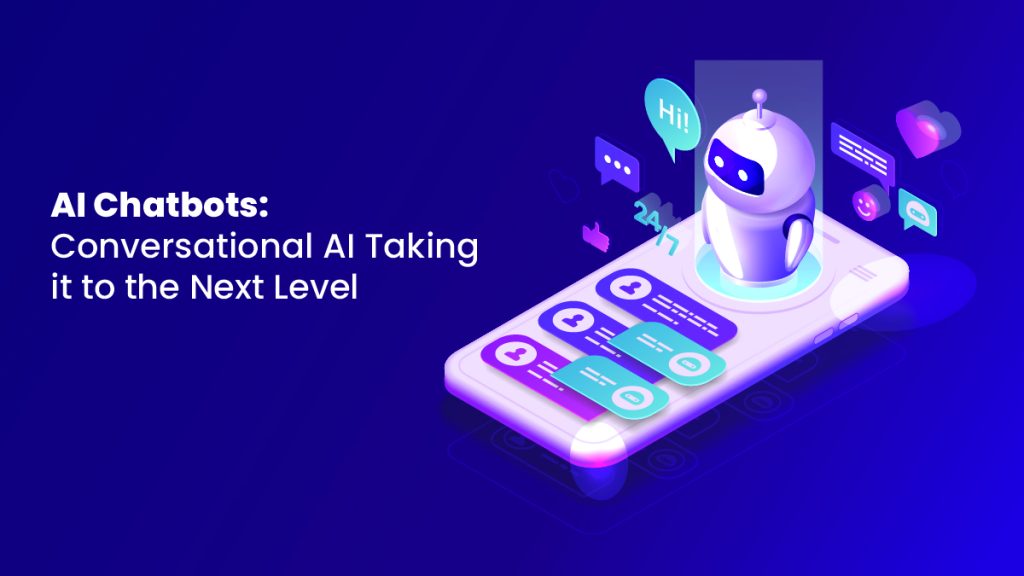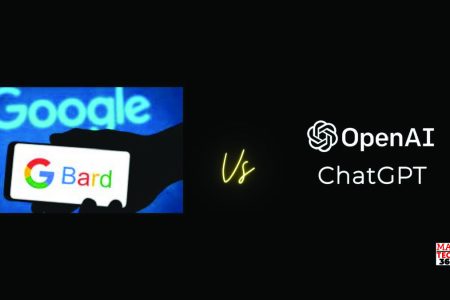The debate of “Bard vs. ChatGPT” has suddenly come alive! The conversations about ChaptGPT went on an all time high when it was launched on 30th November, 2022 by San Francisco-based, Elon Musk-owned company OpenAI (also backed by Microsoft). The service was initially free to the public and gained over a million users by just the beginning of December.
Conversational artificial intelligence (AI) is the process that utilizes machine learning abilities to communicate. It learns and improves the more inputs it’s provided by the users. Imagine a kid who learns from its surroundings and the conversations they hear, slowly and steadily getting a hang of the language. Similarly, conversational AI improves itself from the multiple conversations when more and more customers engage with it.
Artificial intelligence is constantly helping chatbots improve their conversation skills, with nearly 70% of accuracy to somewhat like everyday human conversations. As chatbots become more technologically advanced over time, they can effectively handle personalized and complex tasks. According to Statista, with rising demand for conversational AI and chatbots in particular, the global chatbot revenue is expected to reach a whopping $454.8 million in revenue by the end of 2027!
AI Chatbots: Conversational AI Taking it to the Next Level
AI chatbots are operated with artificial intelligence technology to provide users with the chance to get their problems solved and questions answered, sprinkled with a human touch. They are mainly utilized by companies on their main websites to help solve the queries of customers that land on their pages.

With recent research conducted by Gartner, companies report a staggering 70% fewer call or email inquiries by introducing an AI chatbot on their website, popularly known as a “virtual assistant”. As the world no longer works based on “work hours”, nearly 43% of customers expect 24/7 customer service, catering to their needs any time during the day or night.
AI chatbots can be asked the same question over and over, yet still not get frustrated! Furthermore, this cost-effective assistant doesn’t get tired or ask for paid leaves! But all jokes apart, with ever-increasing advantages of AI chatbots, they are becoming more intelligent with improvements in technologies.
Google Bard vs. ChatGPT: Similarities & Differences
When OpenAI launched ChatGPT, Google answered back with Bard. As of now, Bard is a platform in its testing stages and is only available to a few users in order to understand its intricacies. It is expected that Google Bard will be launched by the end of February in 2023, giving a close fight to ChatGPT. With that, let’s try to settle the “Bard vs. ChatGPT” debate once and for all (if possible).
ChatGPT is an AI-powered chatbot that utilizes machine learning and conversational AI to answer questions by users. It uses the conversational language model to formulate human-like responses to any queries raised.
Google Bard, on the other hand, draws responses from the internet by using Google’s Language Model for Dialogue Applications (LaMDA). Currently, in its beta testing stage, Bard will be equipped to provide more detail as it seeks to retrieve information from simple google search engine answers. Similar to digital assistants like Alexa or Siri, Google Bard will further work as a personal assistant to help users with everyday tasks.
Both ChatGPT and Bard are primarily AI-based software to produce human-like conversational responses to the various queries posted. However, here are the three major differences between the platforms:
- Data Source: The two AI-based conversational platforms differ in terms of their source of retrieving data. Bard draws information from Google or other search engines available on the internet. On the other hand, ChatGPT’s sources of information are limited to data from 2021, somewhat lacking in newer or updated information for the users.
- Language Model: ChatGPT uses GPT-3.5 language model to formulate human-like responses for any queries raised. Whereas, Bard uses LAMDA dialogue applications which was built on an open-source network for understanding the flow of natural language or conversational tone.
- Type of Information: Bard will be able to produce a large chunk of information as per its availability over the internet. However, ChatGPT will use machine learning and artificial intelligence to produce prompts which would be mainly short-from answers (unless specified otherwise).
How Will Bard & ChatGPT Affect SEO Ranking in the Future?
ChatGPT and Bard are powerful tools being used to improve and enhance SEO optimization for companies. Companies are using various SEO-optimized features of ChatGPT to gain domain authority and rank higher in comparison to their competitors. But how is this possible?
ChatGPT uses an effective language generation model which is a way to create content enriched with quality and glazed with relevancy. By generating accurate meta tags, and meta descriptions and drafting website copies, ChatGPT has emerged as a valuable asset to build on SEO strategies for companies. Furthermore, this conversational AI tool discards outdated SEO methods that have been known to produce poor results and replace them with a more recent approach that may be expected to work out better.
On the other hand, since the announcement of Bard has spread across the internet, it is predicted to suggest the best possible SEO practices to its users by offering a personalized answers to the user’s queries. It is expected to provide accurate insights by optimizing keyword searches. For instance, if a user wishes to ask which is the best cardio and strength training plan, the users can expect an in-detail workout plan that caters to their specific needs.
Hence, it can be assumed that these conversational AI chatbots can help in providing more intuitive and user-friendly responses which are projected to boost the usage of these tools for companies. Since Bard feeds onto the data present on search engines over the internet, it is designed to help in building SEOs with time and also for producing SEO-optimized content in the long run.
Google Bard vs. ChatGPT: Who is More Reliable & Accurate?
It has been noticed that ChatGPT is known to showcase facts and stories whereas Bard can provide answers with more accuracy. ChatGPT has been witnessed to provide much more accurate answers with also a few reference links from the source of its information. However, there was an interesting incident that came to light when Google Bard made a factual error in its very first demo.
Bard was asked a question, “What new discoveries from the James Webb Space Telescope can I tell my 9-year-old about?” Bard answered with three bullet points, with one of them stating that the telescope took the very first pictures of a planet outside our solar system.
However, a few astronomers took to Twitter to point out the factual error in the answer as the first image of an exoplanet was taken back in the year 2004 as stated by NASA. Therefore, AI-based chatbots can mess up too, and aren’t foolproof!
In terms of reliability, Google Bard is expected to be more updated and reliable as compared to ChatGPT owing to the sole reason of accessibility of the internet. As ChatGPT does not go beyond information from 2021, it does serve this as an issue, hence, making it less reliable.
Google Bard vs. ChatGPT: Who Wins the AI Race?
Even though the launch of ChatGPT produced a huge roar amongst the people, Google would not release Bard without a good fight. Being an extremely competitive brand, Bard is expected to emerge as a close contender in the AI race. Since Google has maintained a huge database in search engines for several years at a stretch, the amount of data it has is immense.
ChatGPT, on the other hand, has the potential to revolutionize the way we search for information on the internet, just because of its conversational nature and novel technology. With limited information on Google Bard, ChatGPT has reported at least 100 million visits to date, in less than three months, and continues to grow rapidly.
As of now, there is more information about ChatGPT since it is available to the public for free but till the time Bard remains for use only for “trusted users”, not much can be said about the two at this point in time. Therefore, calling the winner of this AI race is inconclusive.
In the coming weeks, with more experiments and fun banter between the two, we can explore uncharted territory to find the real answer for Google Bard vs. ChatGPT. Until then, you can continue using the free version of ChatGPT to assess its features and wait for Google Bard to become available for public use.

